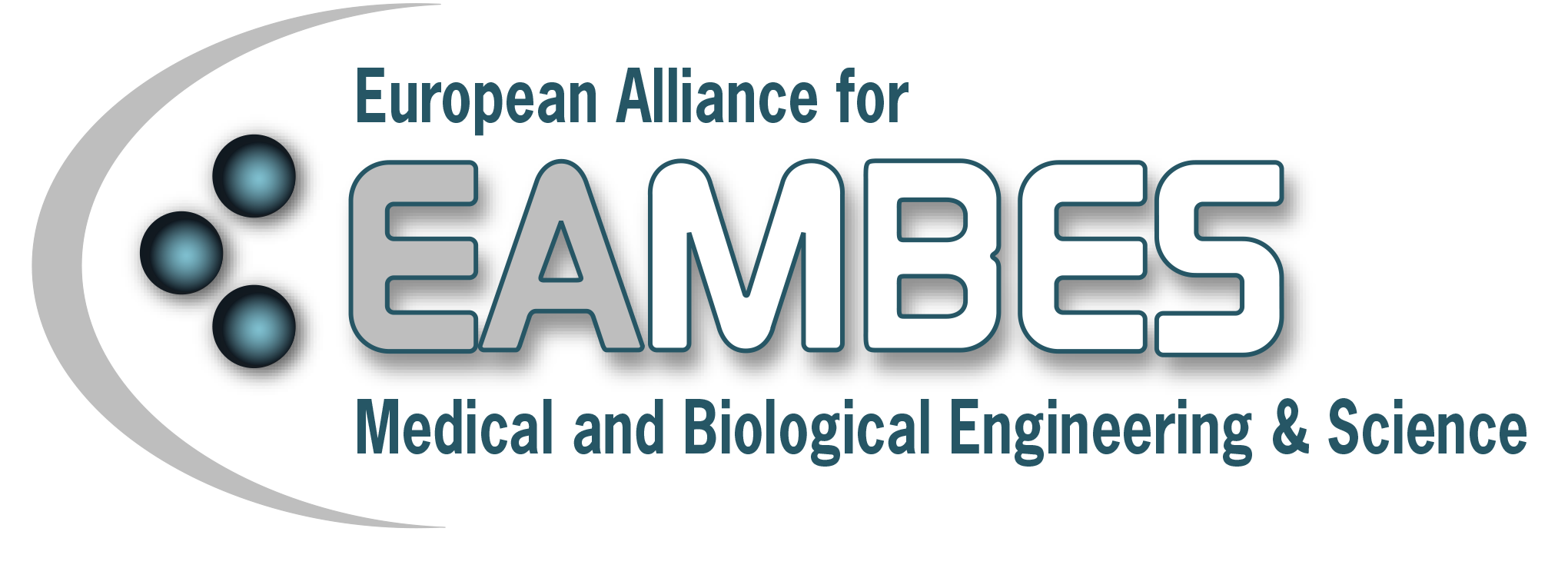The fourth EPIG meeting
European Parliament Interest Group on Biomedical Engineering
The fourth meeting with European Parliament Members was held in hybrid mode on March 21, 2023, on the premises of the European Parliament hosted by MEP Stelios Kympouropoulos with the support of the European Alliance of Medical and Biological Engineering and Science (EAMBES) as part of a week dedicated to the role of technology in health. The event was entitled: “Pandemic Management and Preparedness – Telemedicine and the Role of Innovative Technologies in Securing a Safer Future”. Please find here the final Agenda of the meeting and the Report of the European Health Tech Summit.
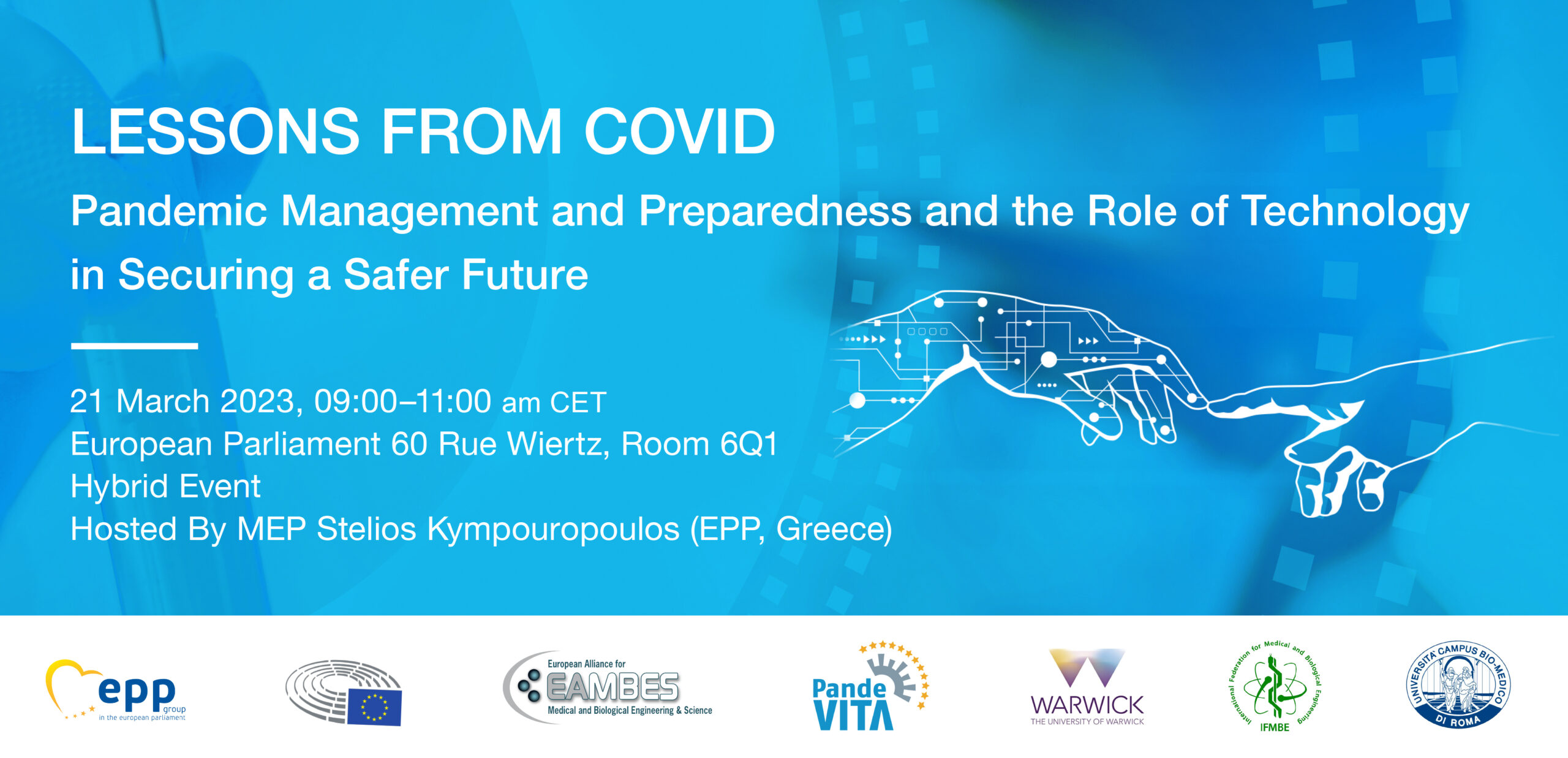
The policy event aimed to pave the way for experts and policymakers to strengthen their dialogue, ensure collaboration between stakeholders and ensure that the EU will exit the pandemic stronger, more resilient, and more autonomous than before.
In the first part, the event aimed to identify the “lessons learned” from the pandemic, in regard to telemedicine and other health technologies used during this period, in order to highlight various best practices followed. In the second panel, the event yielded the floor to medical technology experts in order to explore efficient measures to prepare for the next health crisis in Europe.
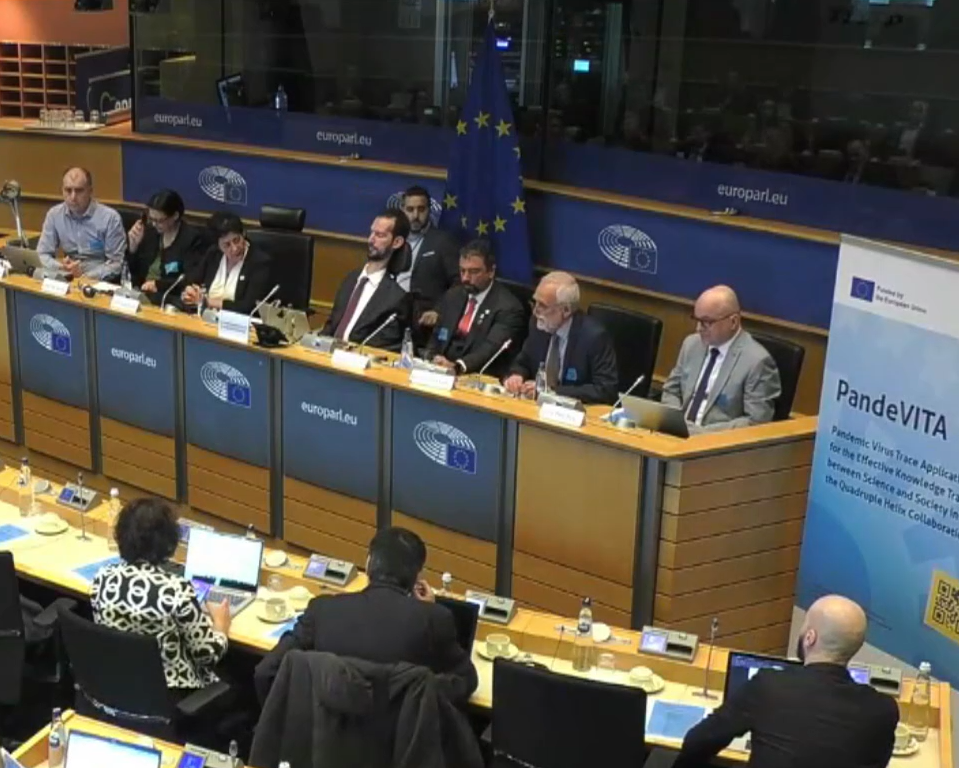
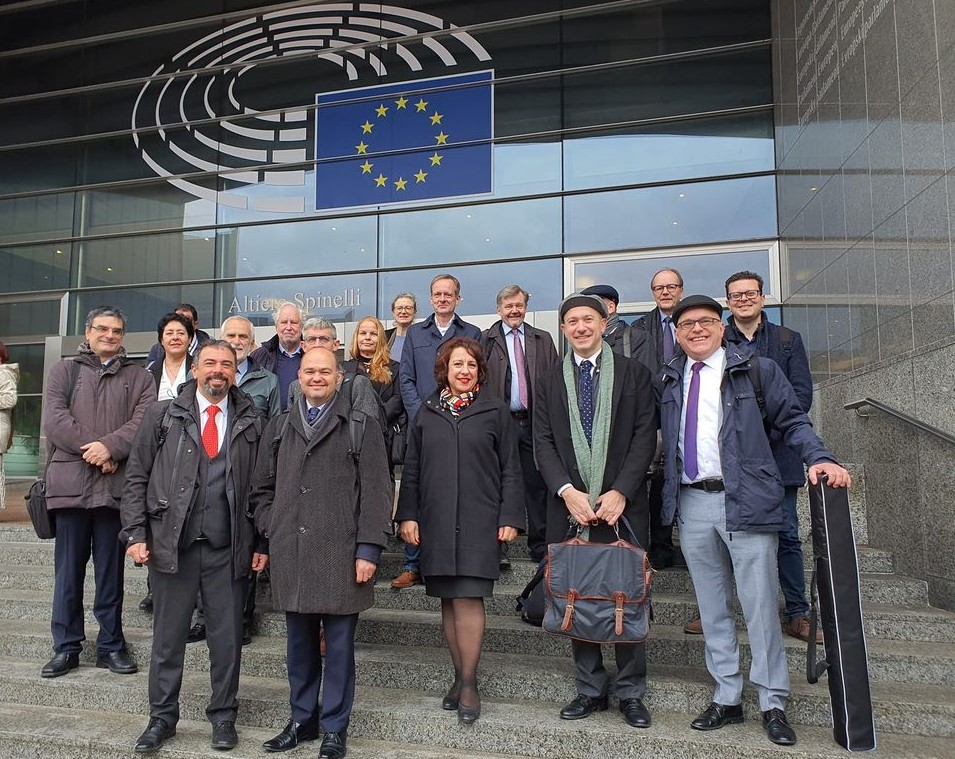
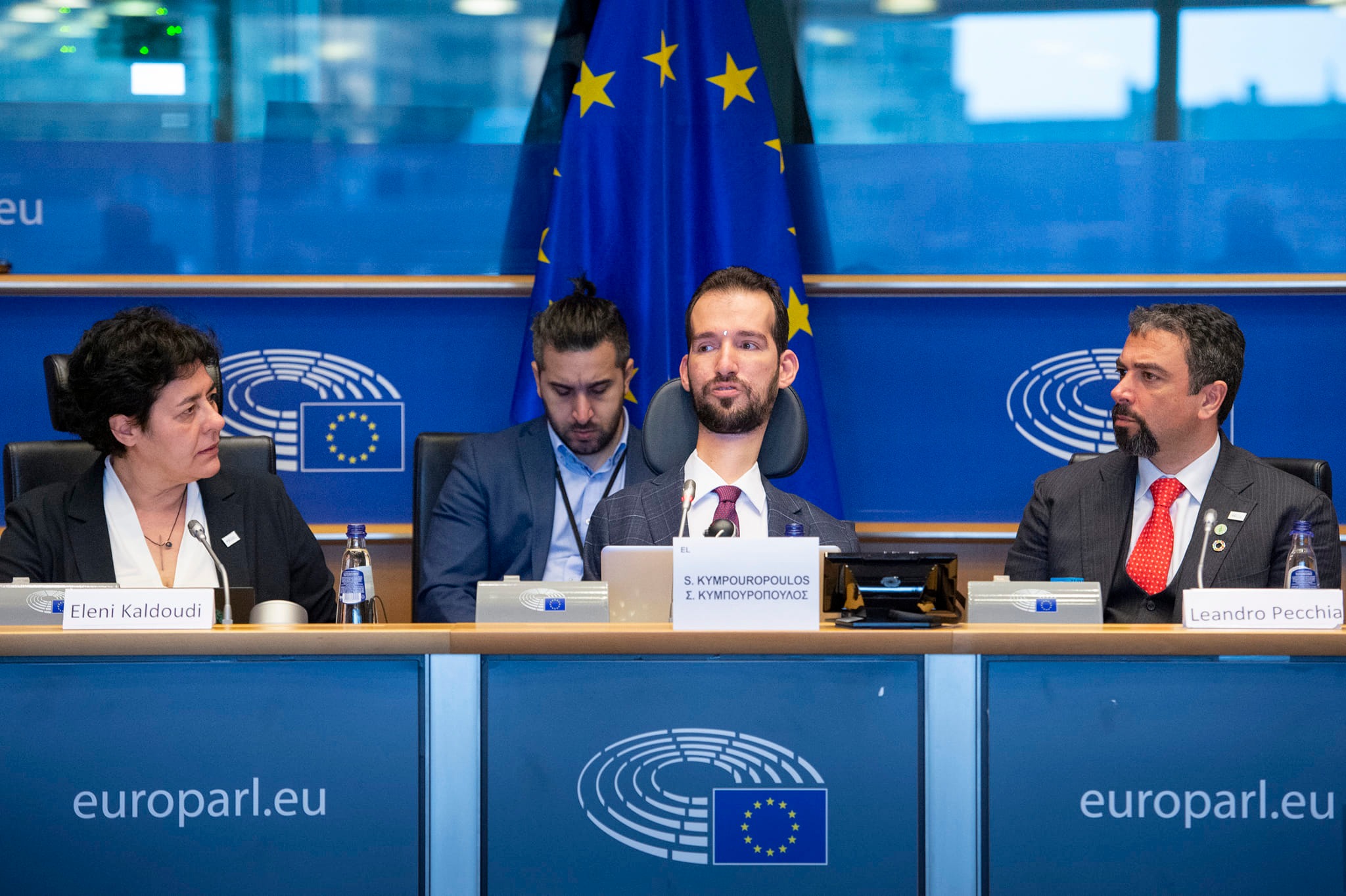
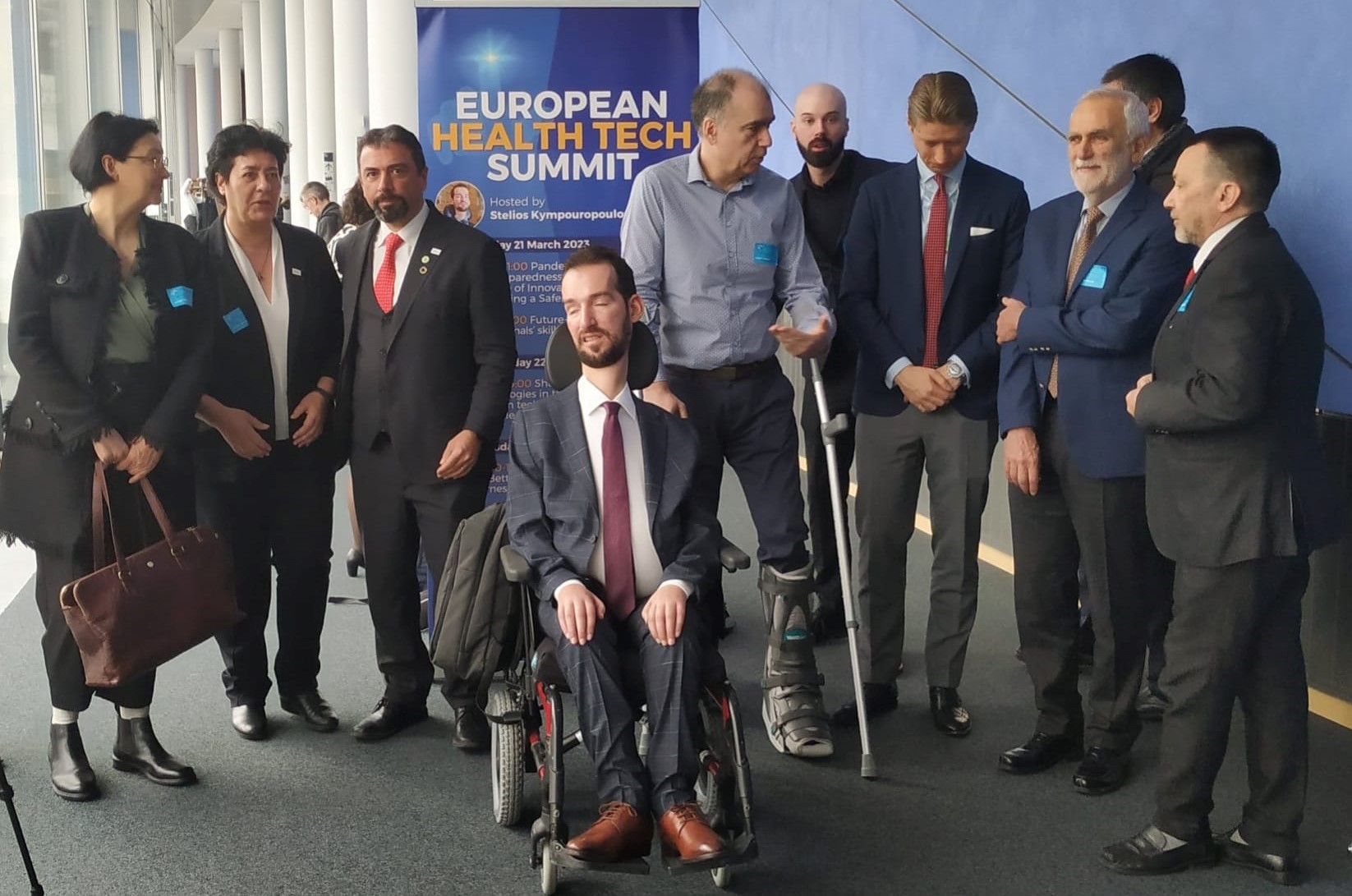
One of the key topics discussed at the “Pandemic Management and Preparedness – Telemedicine and the Role of Innovative Technologies in Securing a Safer Future” event was telemedicine, which was presented as an innovative tool for pandemic response and a way to overcome geographical and social barriers to accessing health services. The speakers discussed the steep increase in telemedicine from 2019 to 2022 and the potential it has to change healthcare delivery through AI, developing clinical protocols, legal frameworks, and change management. Several case studies were presented, including the use of telemedicine in the Cyclades in Greece and the oral health programs aiming to improve access to oral healthcare through e-health and teledentistry. During the panel, the importance of widespread cooperation in pandemic management was, also, highlighted. The Quintuple Helix Innovation Model was presented. This model involves collaboration between academia, the economy, media/culture, the natural environment, and politics. The speakers referred to the PandeVITA platform, which seeks to understand legal and ethical boundaries, user needs, and vulnerabilities in pandemic times. The platform features three case studies, including information and knowledge by helix, macroeconomic indicators, and topical, geospatial, and emotional features.
Another topic discussed was the impact of COVID- 19 on the medical technology sector, which highlighted the transition to online consultation and remote monitoring through digital platforms. A representative of the European Commission (DG SANTE) pointed out the need for European strategic autonomy in medical devices and the importance of implementing EU legislation, including EU 2017/745 and EU 2017/746, which aim to improve transparency and enhance economic operators.
Finally, the panel addressed the need for global pandemic management, through access to medical devices, including In Vitro Diagnostics (IVDs). The speakers highlighted the significance of cooperation and drawing lessons from past experiences to attain operational preparedness and all-encompassing and long-lasting management. Overall, the conference provided valuable perspectives on the difficulties and prospects arising from the COVID-19 pandemic and underlined the role of innovation and technology in handling pandemics and securing a safer and healthier future for everyone.
